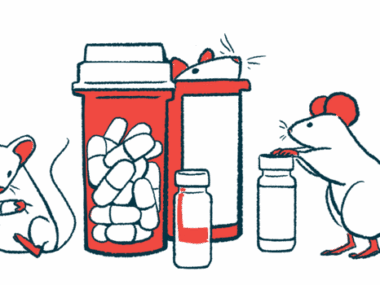CARsgen, Huadong Reach Deal to Commercialize CT053 in China
Huadong gets exclusive rights to cell therapy for hard-to-treat myeloma
Written by |

Huadong Medicine has been granted the exclusive rights in China to commercialize CT053, CARsgen Therapeutics’ investigational cell therapy for people with relapsed or refractory multiple myeloma (RRMM), pending the treatment’s potential approval by regulators in the country.
The two companies, both based in China, have entered a collaboration agreement — with a possible overall value in excess of $180 million — that would see Huadong bring the novel therapy to patients on the mainland.
CARsgen submitted a new drug application (NDA) seeking CT053’s approval in China in October 2022. That application was given priority review by the China National Medical Products Administration (NMPA).
“Huadong’s extensive commercialization experience in mainland China along with their strategic goal of being a leader in the oncology therapeutic area created the opportunity for a strong, strategic and mutually beneficial partnership between our two companies,” Zonghai Li, MD, PhD, CARsgen’s CEO, chairman of the board, and chief scientific officer, said in a company press release.
CT053 “has shown promising data in clinical programs and is now under NDA priority review by NMPA,” Li said, adding, “We believe this collaboration with Huadong Medicine will enhance the successful commercialization of [CT053] in mainland China.”
CARsgen is seeking CT053’s approval in China
The NDA filed by CARsgen included data from a China-based Phase 1/2 clinical trial called LUMMICAR STUDY 1 (NCT03975907). That ongoing trial, slated for completion in December 2024, is testing the therapy in more than 100 people with RRMM.
Another ongoing study — this one a Phase 1b/2 trial called LUMMICAR STUDY 2 (NCT03915184) — is evaluating CT053 in the U.S. and Canada. It’s specifically examining the safety and efficacy of the treatment candidate in RRMM patients.
“CARsgen is a leading biotech company in the development of innovative cell therapies for cancer patients and has built integrated R&D and manufacturing capabilities,” said Liang Lv, Huadong’s chairman. “We are excited to collaborate with CARsgen to commercialize CT053.”
“Leveraging Huadong’s strong commercial presence in [blood-related disease], Huadong is committed to bringing CT053, an innovative and highly effective new treatment, to more [RRMM] patients in China, and improve their survival and quality of life,” Lv added.
Under the terms of the collaboration agreement, CARsgen will receive an upfront payment of RMB200 million (nearly $29.5 million) and is entitled to receive up to RMB1 billion (about $151 million) in payments if certain regulatory and commercial milestones are met.
Furthermore, CARsgen will continue to be responsible for the development, regulatory approval, and production of CT053 in mainland China.
Multiple myeloma is a rare blood cancer beginning in plasma cells — a type of white blood cell normally responsible for producing antibodies that help fight infectious microbes and other threats.
CT053 is a chimeric antigen receptor (CAR) T-cell therapy that uses a person’s own T-cells — a type of cancer-killing immune cell — as a treatment after modifying them in the lab. The process involves collecting the patient’s T-cells genetically altering them to produce a CAR that targets a specific cancer protein. The modified cells are then injected back into the patient.
In the case of CT053, the target protein is the B-cell mature antigen, present at the surface of most malignant plasma cells. The therapy ultimately targets and eliminates the cancer cells while leaving the healthy ones unharmed.
The therapy has received orphan drug and regenerative medicine advanced therapy designations in the U.S. and orphan drug status and priority medicines designation in Europe. In China, CT053 was granted breakthrough therapy status for treating relapsed or refractory multiple myeloma.
These designations are meant to provide regulatory and financial benefits for development and commercialization, as well as support the expedition or acceleration of a therapy’s approval.
The LUMMICAR STUDY 1 underway in China is testing the therapy in up to 114 RRMM patients aged 18–75 years. The goal of the study’s Phase 1 part is to evaluate the safety and tolerability of two doses of the therapy to determine the best dose to be tested in its subsequent Phase 2 part.
The Phase 2 part is assessing CT053’s safety and efficacy, including the overall response rate of participants.
The North America-based LUMMICAR STUDY 2, which has a similar design and goals to the LUMMICAR STUDY 1, is expected to involvel up to 105 patients, ages 18–79.
CARsgen also plans to launch additional trials to test CT053 as an earlier line of therapy for multiple myeloma.




